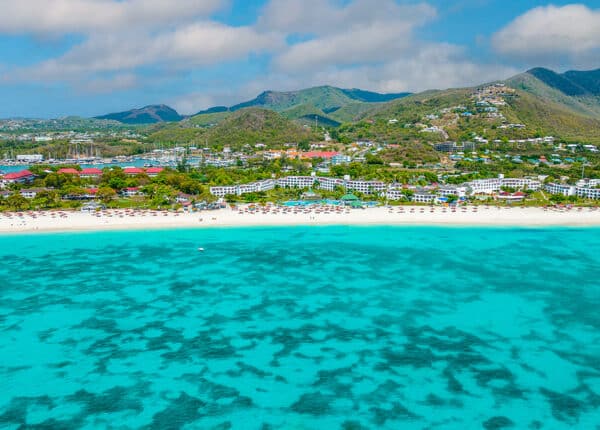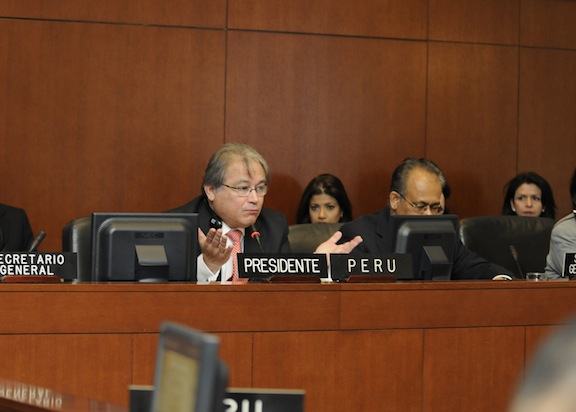OAS Holds Talks on Dominican Republic Citizenship Case
Above: the OAS meeting this week (OAS Photo/Juan Manuel Herrera)
By the Caribbean Journal staff
The debate about the recent Dominican Republic constitutional court decision that could strip hundreds of thousands of Dominicans of Haitian descent of citizenship continues to grow regionally.
This week’s Permanent Council of the Organization of American States discussed the decision, at the behest of the Permanent Mission of St Vincent and the Grenadines.
For his part, Haiti’s Permanent Representative to the OAS, Duly Brutus, said the country had deep concerns about the ruling, which led to the recall of Haiti’s Ambassador to the Dominican Republic.
He called it “truly alarming” that citizens could soon find themselves stateless, and called on OAS member states to seek a solution to the problem.
St Vincent and the Grenadines Ambassador La Celia Prince said the issue “is of interest to us in that it directly impacts the lives of fellow human beings, citizens of our Hemisphere and more specifically members of our diaspora.”
Cesar Ramon Pina Toribio, legal adviser to the executive of the Dominican Republic, said his country was “completely open” to receive the support of the region’s countries to help it in ensuring the protection of rights and due process.
“Our government always advocated and has developed relationships of profound respect and brotherhood with other nations, and especially with the Republic of Haiti,” he said. “We want to emphasize that the Dominican government will not allow the violation of the fundamental rights of people that are protected by our laws as a result of this judgment or any other.”
But he said that judgments of the Constitutional Court were “irrevocable and final,” and that they constituted “binding precedents for the government and all organs of the state.”
OAS Secretary General Jose Miguel Insulza said the Inter-American Commission on Human Rights had issued a statement on the decision, and will soon visit the Dominican Republic to learn more about the case on site.
“No one can be deprived of their nationality, and therefore there is a human rights problem. But we also have an institutional problem,” Insulza said. “The Organization of American States is governed by the Inter-American Democratic Charter, which among other things, institutionalizes the rule of law and respect for the independence of the branches of government. And in this case there is no doubt that this is a statement that has been issued by a constitutional court of a state under its own domestic law.”
He said the process would be best dealt through the human rights system.
“We will continue to work on this issue with the Inter-American Commission in consultation with the Council doing everything possible, without any actions that would mean a break in dialogue,” he said. “Because we have to find a solution with the maximum degree of agreement, the maximum degree of openness and the maximum degree of goodwill. That has been and remains the conduct of this Organization.”







